John Hume Quotes & Sayings (Page 2)
John Hume quotes and sayings page 2 (politician). Here's quote # 11 through 20 out of the 28 we have.

“In coming to that agreement, my party had a clear philosophy throughout. In Northern Ireland, we should have institutions that respected the differences of the people and that gave no victory to either side.”
“In my opinion, what changed the situation eventually - and, of course, it took a lot of time to change it, things like that don't change in a week or a fortnight - was the new educational system.”
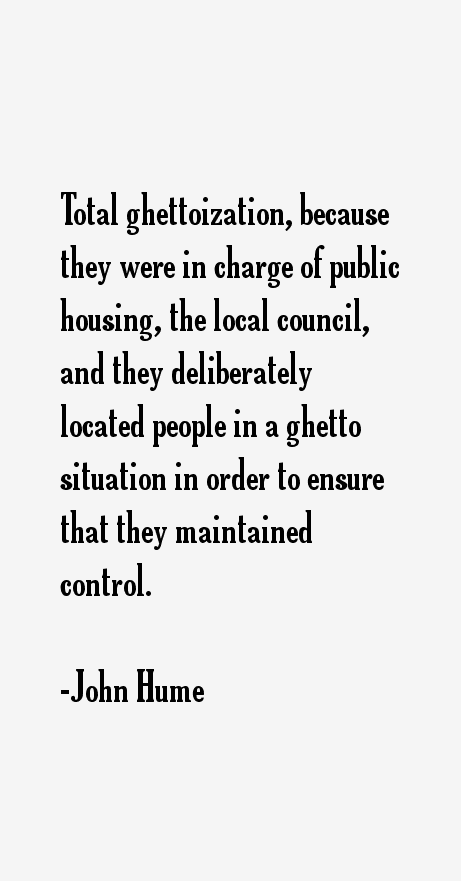
“Total ghettoization, because they were in charge of public housing, the local council, and they deliberately located people in a ghetto situation in order to ensure that they maintained control.”
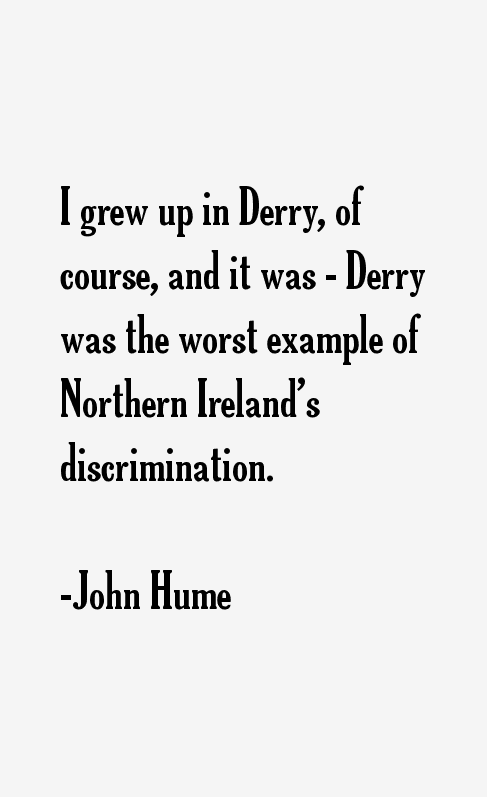
“I grew up in Derry, of course, and it was - Derry was the worst example of Northern Ireland's discrimination.”
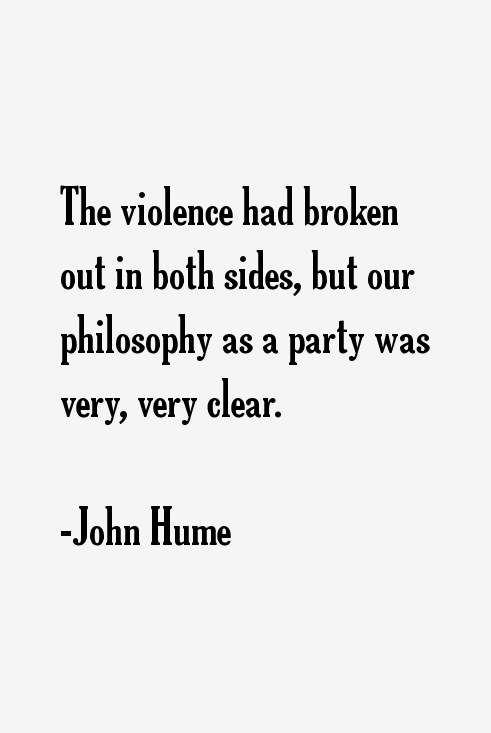
“The violence had broken out in both sides, but our philosophy as a party was very, very clear.”

“Therefore they should come to the table and reach an agreement that would protect their identity.”
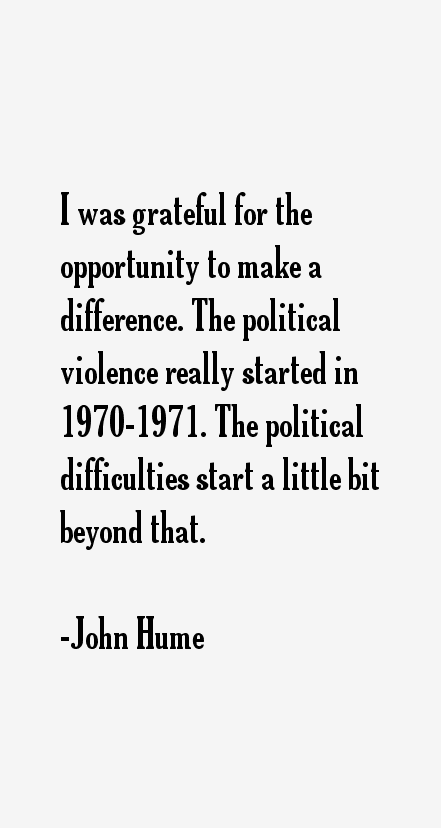
“I was grateful for the opportunity to make a difference. The political violence really started in 1970-1971. The political difficulties start a little bit beyond that.”
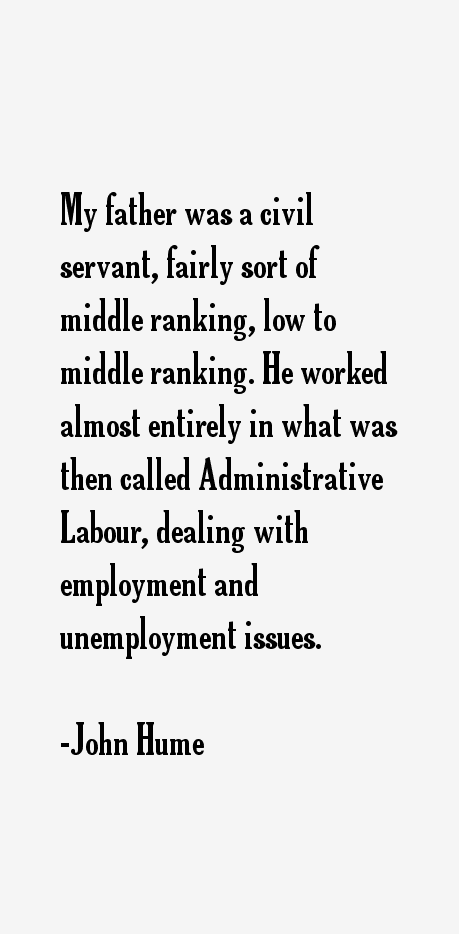
“My father was a civil servant, fairly sort of middle ranking, low to middle ranking. He worked almost entirely in what was then called Administrative Labour, dealing with employment and unemployment issues.”

“The civil rights movement in the United States was about the same thing, about equality of treatment for all sections of the people, and that is precisely what our movement was about.”
“The only thing I shall talk about is my sporting achievements at school. My primary sporting achievement at school was that I dodged games for two complete years and was well through the third year before they discovered that I had completely avoided all games.”
John Hume Quotes Rating
No Ratings Yet
Leave A Comment
























